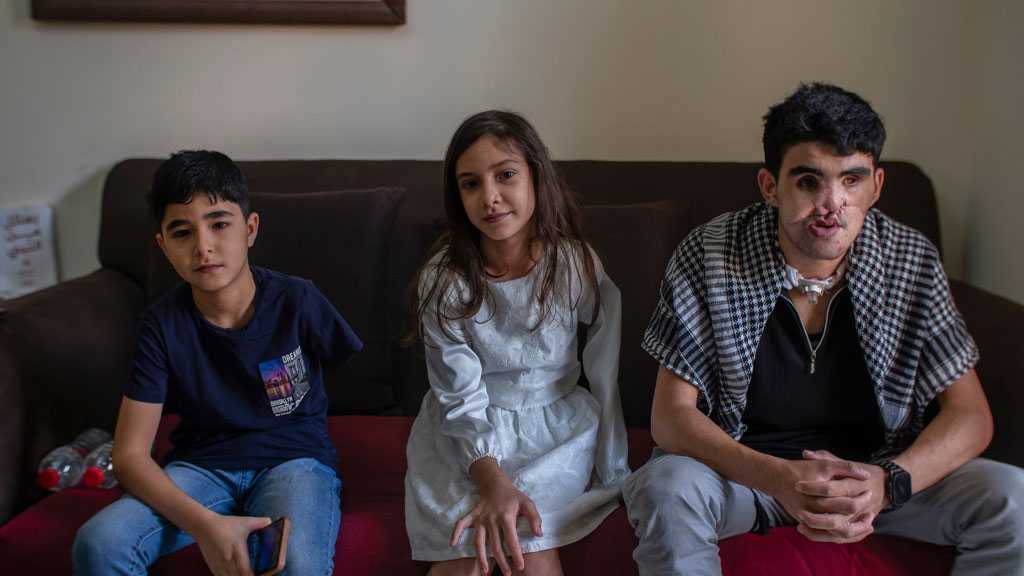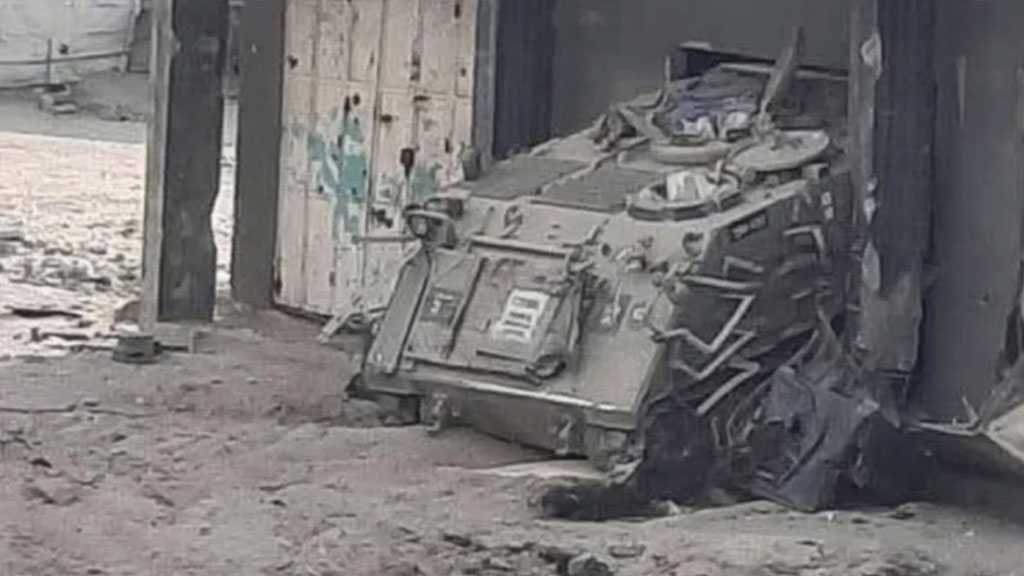Diplomat of Resistance: Martyr Amir-Abdollahian as the Voice of Palestine on Global Stage

By Maryam Qarehgozlou, Press TV
Speaking at a commemorative event for the ‘martyrs of service’ in Tehran earlier this month, Iranian President Masoud Pezeshkian recounted a poignant moment shared by Oman’s foreign minister, who was deeply moved by the simplicity of Iran’s late top diplomat Hossein Amir-Abdollahian’s residence – a quiet testament to a life of humility and service.
“During a visit to the late Foreign Minister Amir-Abdollahian’s home, the Omani official was astonished to find such a modest dwelling, as it paled in comparison to his own [lavish] residence,” President Pezeshkian said.
The 50-year-old Iranian foreign minister passed away alongside President Ebrahim Raisi and others in a helicopter crash on May 19, 2024, amid foggy weather in northwestern Iran.
Amir-Abdollahian was known for his modest lifestyle and, more importantly, for passionately championing the cause of the oppressed people on the global stage.
He skillfully used his diplomatic position to become a “spokesperson,” “commander,” and “ambassador” for the Axis of Resistance, leveraging his extensive understanding of Arab Muslim countries within the region.
He believed that the Palestinian people and resistance groups had the right to determine their own destiny and rightly resist the oppressive system of occupation and subjugation.
“Regional and international actors must refrain from imposing their externally designed plans upon the Palestinian nation. Instead, they should allow the Palestinian people to decide their future based on mechanisms that are mutually agreed upon by Palestinians themselves,” he said during a meeting with heads of Palestinian resistance groups in Beirut in February 2024.
With the onset of Operation Al-Aqsa Flood on October 7, 2023, Amir-Abdollahian was among the very first international political figures who spoke for and defended the legitimate right of the Palestinian people to resist the genocidal regime in “Tel Aviv” and its backers.
At the height of the genocidal bombardment of Gaza, which began immediately after Operation Al-Aqsa Flood, and the suffocating humanitarian blockade, he chose to be vocal and outspoken.
He stood firm in the face of international pressure and spoke the truth: “It is the Zionist regime that initiated violence, and resistance is a natural and lawful response.”
The ‘Ambassador’ of Resistance
At the young age of 33, Amir-Abdollahian was appointed to the position of Iran’s deputy ambassador in Baghdad. After serving in this role for four years, in 2001, he took up the role of the director of the Persian Gulf desk at the foreign ministry.
During the US invasion of Iraq in 2003, Amir-Abdollahian assumed the responsibility of serving as the deputy to the special aide for Iraq at the foreign ministry.
According to his close aides, he had exceptional expertise in the political currents dominating the Arab world, which led to his close ties with the Hezbollah resistance movement in Lebanon.
This close relationship with Hezbollah also stemmed from his deep and longstanding friendship with the top Iranian anti-terror commander, General Qassem Soleimani.
Due to over two decades of service in the foreign ministry, particularly in key positions related to Arab and African affairs, he developed a close working relationship with the martyred Iranian commander who valiantly led the fight against Daesh and its Western backers.
When General Soleimani became the commander of the Quds Force of the Islamic Revolution Guards [IRG], Amir-Abdollahian served as an Iraq expert at the foreign ministry. Their assessment of each other brought them into the same strategic and intellectual camp, leading to coordinated efforts and joint actions in the interests of Iran and the region.
Following the developments in Iraq in 2003 and the fall of Iraqi dictator Saddam Hussein, Amir-Abdollahian was appointed head of the Iraq file at the foreign ministry.
His fluency in Arabic, as well as his deep knowledge and command of the political landscape of the Arab states of the Persian Gulf, made him a key figure, to the extent that General Soleimani maintained direct contact with him for matters related to the countries of the resistance axis.
Amir-Abdollahian established closer coordination with regional resistance groups such as Hamas and Islamic Jihad after the game-changing October 7 Operation Al-Aqsa Flood.
He was frequently traveling, constantly in communication, and served as a host to these Palestinian resistance groups. He was able to convey their voices to the world.
The meetings that Amir-Abdollahian held with Hezbollah in Lebanon following October 7 was an indication that he was regarded as a reliable diplomatic channel between Iran and Lebanon.
As such, he made efforts, especially after the intensification of “Israeli” genocide against Gaza, to focus Iran’s diplomacy with Arab countries on the goal of achieving a ceasefire between the “Israeli” entity and Hamas.
Strengthening the “frontline states” of the Axis of Resistance against the Zionist entity, particularly in response to events of the October 7 operation, became a key priority in his diplomatic agenda at the time.
He maintained a strong presence on the international stage. In global summits, he projected the voice of the Palestinian people to the world, and with all his strength, supported efforts to stop the genocide and lift the suffocating and unjust blockade.
In April 2024, just a month prior to his martyrdom, Amir-Abdollahian used a UN Security Council session to unequivocally condemn the “Israeli” entity for its genocidal war crimes in Gaza.
He emphasized how “Israel”, backed by the US and other allies, refused to adhere to red lines and pursued its apartheid, ethnic cleansing, and genocidal policies against Palestinians.
“‘Israel’ is not a legitimate state; it is merely an occupying power. The passage of time can never confer legitimacy upon an occupying force, because according to the well-established principles of international law, the occupation of a territory is considered temporary, even if it lasts for decades,” he noted at the time.
He highlighted that notion of eliminating the Palestinian resistance and Hamas, as a liberation movement standing against the occupying force, is “nothing more than an illusion.”
The Voice of Resistance
In an interview following the martyrdom of Amir-Abdollahian, Abolfazl Amouei, the spokesperson for the national security and foreign policy commission of the Iranian parliament, said the martyred diplomat was considered a “resistance diplomat.”
“His deep knowledge and focus on regional countries, whether in the Gulf through his role in the Iraq Task Force at the foreign ministry, or later in the Levant, particularly Lebanon and Syria, and his connection with the resistance front had made him a representative voice of the resistance movement and an advocate for the of Islamic unity,” Amouei said.
In the parliament, aside from his international parliamentary roles, Amir-Abdollahian also served as the secretary of the Conference in Support of the Palestinian Intifada [uprising].
“Through this position, he maintained close ties with resistance groups in the region. His dialogues with Hezbollah in Lebanon, Palestinian resistance movements like Hamas and Islamic Jihad, and Iraqi resistance groups were based on mutual understanding and familiarity, and these interactions were clearly visible,” Amouei added.
According to Amouei, Amir-Abdollahian, during his term as the foreign minister, sought to establish close ties with other pillars of the Islamic Republic’s power, including the defense and military sectors.
“This contributed significantly to enhancing diplomacy in support of the resistance. The peak of these developments was in recent months, during the events of the Al-Aqsa Flood, when Amir-Abdollahian became, in a sense, the sole voice of the resistance within the realm of international diplomacy.”
Resistance groups remain active even after his martyrdom, but the current international system and global institutions do not provide a suitable platform for them, Amouei said.
“Our foreign minister became their unique voice in arenas such as the United Nations Security Council and the UN Human Rights Council. His statements in these institutions represented the suffering of the Palestinian people and the aspirations for resistance and awakening among the peoples of Lebanon, Yemen, Iraq and Syria.”
Amouei highlighted that Amir-Abdollahian’s collaboration with Martyr General Soleimani and the friendship and affinity he had with other prominent resistance figures all contributed to his becoming an “outstanding, irreplaceable star” in advancing resistance diplomacy.
“I believe the reactions we are seeing from regional countries regarding his martyrdom are, in part, a reflection of the respect for his personal engagement and the effort he made in defending the rights of the Palestinian people during the Al-Aqsa Flood operation.”
Commander of resistance diplomacy
Adnan Mansour, former foreign minister of Lebanon, speaking on the sidelines of the international conference on “Resistance Diplomacy and Commemoration of the Martyrs of Service” on Sunday, emphasized that Amir-Abdollahian presented a unique model in the realm of diplomacy, stating that he truly deserved the title “commander of resistance diplomacy.”
Mansour stressed that Amir-Abdollahian was not only the foreign minister of Iran but also served as the “foreign minister of the Axis of Resistance” and its flagbearer in both regional and international forums.
“With the martyrdom of Amir-Abdollahian, the resistance movement and the field of diplomacy lost a great and resilient personality, one who was principled, ethical, and a staunch defender of the rights of the oppressed and downtrodden.
“He was the voice of the voiceless, of the oppressed, and of seekers of truth in the face of the arrogant and tyrannical powers across international and regional platforms.”
Ibrahim Mohammed Al-Deilami, the ambassador of Yemen to Iran, speaking at the memorial ceremony for the late foreign minister on Saturday, said that when Amir-Abdollahian was appointed the foreign minister, he essentially became the ambassador not only of the Islamic Republic of Iran but also of all Islamic countries.
“He was a leading figure in the struggle against global arrogance,” Deilami said. “Amir-Abdollahian succeeded in halting the momentum of the normalization train—the efforts to normalize relations with the Zionist regime.”
Central pillar of the Axis of Resistance
Osama Hamdan, Head of foreign relations for Hamas, on the sidelines of the international conference on “Resistance Diplomacy and Commemoration of the Martyrs of Service” said that Amir-Abdollahian based his diplomatic engagements and consultations on the principle of legitimate self-defense and the justness of the Palestinian cause.
“From the very beginning of the Al-Aqsa Flood Operation, Martyr Amir-Abdollahian played a significant role through his extensive efforts in exposing the crimes of the Zionist regime in Gaza and contributed meaningfully to the formation of regional and international campaigns in support of the people of Gaza,” he noted.
Nasser Abu Sharif, the representative of the Palestinian Islamic Jihad Movement in Tehran, in a commemorative note on the first anniversary of the martyrdom of Amir-Abdollahian, also described him as a man who transformed diplomacy into a tool for defending the oppressed and placed politics at the service of the Palestinian cause.
“He was not merely a foreign minister—he was one of the central pillars of the Axis of Resistance,” he wrote.
“He was a powerful voice in defense of the Palestinian people and a true supporter of the resilient people of Gaza, who have long suffered under siege, war, and injustice.”
According to Abu Sharif, after Operation Al-Aqsa Flood, Martyr Amir-Abdollahian played a crucial role in securing the political standing of the resistance and preventing the Palestinian resistance from being marginalized in diplomatic arenas.
“He did not view Gaza merely as a humanitarian issue, but as the foremost bastion of the Islamic Ummah,” he said.
“From our perspective within the Palestinian Islamic Jihad Movement, the martyrdom of Hossein Amir-Abdollahian is a great loss for the resistance and its broader axis. However, his legacy lives on, and his approach will remain a model for all freedom-loving people around the world.
“On this anniversary, we reaffirm our commitment never to abandon Gaza, and to continue amplifying the cry of Palestinian suffering in every field and at every moment.




